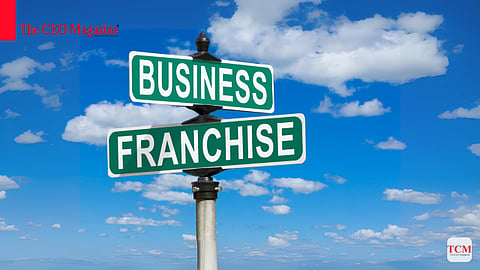

Franchise Business Basics
A franchise is a business model that offers a wealth of opportunities. As a franchisee, you gain access to a wealth of business knowledge, processes, and trademarks from the franchisor. This partnership, formalised in a franchise agreement, allows you to sell products or services under the franchisor’s brand. While there are rules to follow and fees to pay, the potential for success is substantial. The journey of creating and distributing the brand and franchise system, commonly called franchising, is filled with promise and the potential for significant success.
Franchise contracts are complicated and are different for each Franchisor. Generally, the Franchise agreement includes three types of franchise payment to the Franchisor, those are:-
The Franchisee must purchase the controlled rights or trademark from the franchisor for an upfront fee.
The Franchisor often receives payment for training, equipment or business advisory services.
Lastly, the Franchisor receives ongoing royalties or a percentage of the operation sales.
A Franchisee contract is a temporary kind of rental business. It's important to note that the franchisee does not signify business ownership. A franchise contract typically lasts five to thirty years, with the possibility of termination due to penalties. Understanding the contract's temporary nature is crucial for all potential franchisees.
One of the significant benefits of a franchise is that you don’t have to start from scratch. With the branding and design concepts ready to go, you can concentrate on managing the operational aspects of the business. However, the con is that you don’t have creative control if you wish to design the brand identity and products. The list doesn't end here. Following are the major pros and cons of starting a Franchise Business:-
Pros
Ready-made business formula
Market-tested products and services
Established brand recognition and customer base
List of approved suppliers
Logo, branding and style already set
Cons
Higher start-up cost
Less freedom to innovate
Stick to corporate standard
Lack of territory choice
People wish to start and invest in several types of Franchises. Some of the significant Franchise are as follows:-
The most common place we have been engaged once is a restaurant or food store. If you have a favourite convenience store or restaurant, you must have a location in mind to start your venture. Some of the most popular food Franchises are:-
Mcdonalds
KFC
Dominos
The healthcare and fitness sector can also be booming Franchises. If you want healthcare services, you can look into companies that offer home nurses or professional consultations. For instance:-
Anytime Fitness
Home helpers
Max lab
Some of the most famous business services are as follows:-
Action coach
Real property management
Alpha Graphics
After you decide to pursue this business, starting a franchise involves several steps. From picking to getting a license to securing space, you have to plan this process ahead of time to stick to the franchisor’s standards. Here’s a list of steps you can follow to start your Franchise:-
These are the key points to keep in mind when you’re picking a franchise opportunity:-
Industry fees
Liquid capital needed
Average monthly/yearly revenue
Royalty fees
Marketing fees
Other fees
Before starting a franchise, ensure one isn’t already in the area. While some businesses, like McDonald’s', can do well in multiple locations, you want to avoid opening a new spot where it might face too much competition and not perform as well. Do some research to find out if similar franchises are nearby.
When considering starting a franchise business, you must consider several different costs. In addition to regular business costs such as rent and maintenance, you must pay a yearly royalty to the franchisor. Other costs include travel, training with the company, and paying local taxes to start your business.
Even though many aspects of the business are already defined, you’re in charge of the most important ones. When you write your business plan, you can outline why you would be a strong business steward.
The franchisor will give you a contract to follow when running the business. Before you sign, carefully read it and understand all the rules, regulations, and standards they expect from you. It’s important to know what the franchisor requires and ensure you’re okay with meeting its expectations.
After you write your business plan, it’s time to form an LLC or corporation. Franchisors require different business entities based on their overall structure. Either way, these businesses mean you can start categorising your business expenses.
Once you have your business operations set, it’s time to find the perfect location for your headquarters. The franchisor will likely have specific guidelines about the size and layout of the space you need. This could include details about the appliances and amenities required for a restaurant to ensure your location matches the brand's standards. Make sure to follow the guidelines provided by the franchisor about the space of the franchise.
You can start looking for employees once you finish all the steps above. The franchisor probably already has job descriptions and titles, so it’ll be easier to post job openings and search for good employees. The franchise owners might also have an internal job posting system if employees at other franchise locations want to relocate.
Franchising is a well-recognised way of doing business that is often exploited to get an idea to start a company but with the support and systems of well-established brands. By acquiring a franchise with the right company, you will get a chance to enjoy the benefits of an established and well-proven business model that will allow the use of established marketing strategies and ongoing support, which will facilitate business success.
Follow us on Google News
